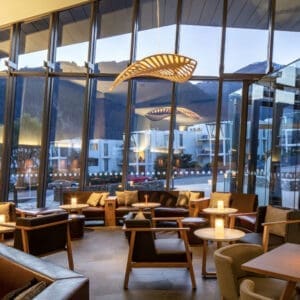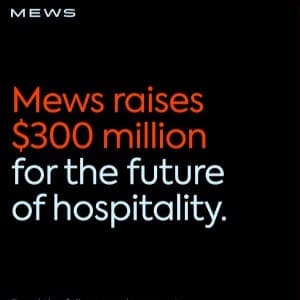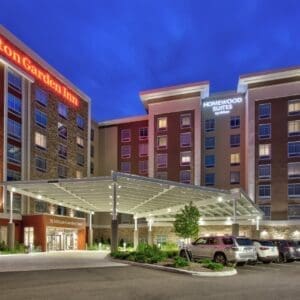 In what would be the biggest deal since Pennsylvania legalized casino gambling in 2004, Las Vegas Sands Corp. has reached an agreement in principle to sell Sands Casino Resort Bethlehem to MGM Resorts International for about $1.3 billion, according to two sources with knowledge of the deal.
In what would be the biggest deal since Pennsylvania legalized casino gambling in 2004, Las Vegas Sands Corp. has reached an agreement in principle to sell Sands Casino Resort Bethlehem to MGM Resorts International for about $1.3 billion, according to two sources with knowledge of the deal.
Though major issues including price have been agreed upon, both sides will need several weeks of “due diligence” before a deal can be signed and an announcement made, according to several sources who called the sale “imminent.” The deal will put arguably the state’s most successful casino in the hands of one of the nation’s fastest growing casino operators, giving Las Vegas-based MGM another East Coast territory to add to its recent acquisitions in New Jersey, Maryland and Massachusetts.
The sale, which would need the Pennsylvania Gaming Control Board’s approval, would end Las Vegas Sands’ eight-year run in Bethlehem, where it attracts nearly 25,000 people a day. Last week, Sands Bethlehem CEO Mark Juliano sent an email to employees that talks were underway, but “The sale is not imminent, and there is a lot of work that still needs to be done before a sale is final.”
Sources said the deal could take six months to close.
Las Vegas Sands Corp. spokesman Ron Reese on Wednesday reiterated the company’s statement on the deal and declined further comment.
“Las Vegas Sands is regularly approached about potential interest in various assets,” the statement said.Ê”The company has no announcement to make at this time. As always, we thank our dedicated team members for their hard work and professionalism.”
Officials at MGM, the world’s second largest casino company, also declined to comment.
“Our statement from last week still holds,” said Mary Hynes, MGM spokeswoman. “We have no comment on this or any other merger and acquisition activity.”
Wall Street analysts already seem to like the potential deal.
Analysts say the deal could be done in a variety of ways. MGM Resorts International could buy the property, transfer it to its real estate arm — MGM Growth Properties — and then lease the property from MGM Growth. Or MGM Growth, which trades as MGP and is 76 per cent owned by MGM Resorts International, could buy the property, and lease the property to MGM Resorts.
Which option is used may affect investors, but would have little impact on the 9 million people who visit the casino complex each year.
“We believe a Sands Bethlehem sale, which would likely include MGP, could also be beneficial for all involved,” Carlo Santarelli, Deutsche Bank Securities Gaming and Leisure managing director, wrote in a six-page analysis Sunday. “For MGM, the transaction would expand a northeast presence that has grown significantly over the past year, while MGP potentially benefits from a new rent stream. LVS sheds an asset which has already produced a significant [return on invested capital] and strengthens the capital return potential story.”
It’s not clear how the sale would affect the 2,500 employees, but city officials who have urged Sands to develop more of the former Bethlehem Steel lands owned by the casino have been quietly rooting for a sale. Sands has invested $830 million in the Bethlehem site, making it the only Pennsylvania casino with a 282-room hotel, an outlet mall and a concert venue. But its property in south Bethlehem also includes several former Steel buildings, including the hulking blast furnaces, the No. 2 Machine Shop and the Steel General Offices building. City officials in recent years have urged Sands to redevelop those.
“We’ve considered Sands a good corporate citizen, but this sale could be a good opportunity,” Mayor Robert Donchez said. “There has been some frustration in getting Sands to put some focus on the rest of the property. The buyer might be more willing to consider developing it, or at least selling it off to someone who will.”
Also at stake are the casino’s relationships with PBS39, ArtsQuest and the Bethlehem Redevelopment Authority. The non-profits own their land and buildings, and the authority has control of the public plazas, a visitors center and concert venues it has built near the rusting blast furnaces, but all three non-profits rely on arrangements with Sands for parking and access for the site.
“A sale would have a de minimis impact on SteelStacks and the facilities we own,” said Tony Hanna, the authority’s Executive Director.
Don Cunningham, Executive Director of the Lehigh Valley Economic Development Corp., said the due diligence period could take weeks. Talking generally, he said a team of attorneys and accountants for MGM likely will comb the casino’s books to verify revenues, costs, contracts and labor issues — including the recently approved contract with Sands Bethlehem security guards, Las Vegas Sands’ only unionized workers. Meanwhile, a Sands team likely will determine if MGM has the financing to pull off the purchase.
“Each side generally verifies that what has been represented in talks is true,” said Mr Cunningham. “If either side sees something they don’t like, they can generally walk away. Nothing is a done deal until the sale closes.”
Analysts say the sale makes a lot of sense for both companies. For MGM, it expands the company’s footprint in a region where it has been growing fast. MGM National Harbor opened in Maryland last year, and the $950 million MGM Springfield is under construction and set to open next year in the latest state to approve casino gambling, Massachusetts. MGM also operates the Borgata, Atlantic City’s most lucrative casino.
For Las Vegas Sands, selling would make sense because the Bethlehem casino is its smallest and its only regional property. It is not designed to be the kind of fly-in destinations Sands owns in Las Vegas, Macau and Singapore. Soon after Sands Bethlehem opened in 2009, CEO Sheldon Adelson expressed regrets, saying his company would go back to focusing on only destination resorts. He would later reinvest in Sands, but the destination casino continues to be the Las Vegas Sands’ model.
Analysts say the property has been up for sale, for the right price, for at least three years.
In his analysis, Santarelli put the sale range at $1.05 billion to $1.35 billion, calling a $1.2 billion purchase price “reasonable.”
Sale talks come as Pennsylvania’s gambling industry appears headed in a direction Sands officials have publicly condemned. State legislators in search of new gambling revenues to tax this week began debating whether to legalize everything from online gambling to gambling terminals in airports to allowing gambling machines in bars. The hearings in Harrisburg on Tuesday included a parade of Pennsylvania casino representatives and gambling industry officials testifying in support of expansion, broken by the opposition testimony of David Cookson, an attorney for the Coalition to Stop Internet Gambling, which is bankrolled by Adelson.
“Internet gambling companies want to get rid of casino workers and end investment in bricks and mortar, replacing casino and construction jobs with a few servers and IT staff overseas,” Mr Cookson testified. “At a time when we are looking to grow employment in Pennsylvania and across the country, why would legislators approve laws that threaten to eliminate Pennsylvania jobs?”
State Sen. Pat Browne, R-Lehigh, said the arrival of MGM could cause some lawmakers to reconsider their stance on online gambling. Mr Browne, for example, said Sands has been a model casino property, so Adelson’s disdain for online gambling carries weight when new laws are considered.
“I know I would consider changing my opinion if a new player arrives on the scene with a different view of it,” Mr Browne said. “If MGM is the buyer, I’d like to know where they stand before I consider new legislation.”
Also left in question is expansion at Sands. Four months ago, Mr Juliano told The Morning Call that Sands planned to invest in a $90 million, 100,000-square-foot expansion for more restaurants, slot machines and table games. ThoughÊMr Juliano made no formal announcement, Sands was also expected to build another hotel soon, largely because its current hotel is routinely full.
Some of the work on the expansion has begun, but Las Vegas Sands spokesman Reese declined to say Wednesday whether it would continue.
A sale would mark the sixth time a Pennsylvania casino has changed hands. Harrah’s Casino in Chester was sold in 2008 and Rivers Casino in Pittsburgh was sold even before it opened in 2009. The Meadows Casino outside Pittsburgh changed hands in 2011 and again in 2016 and Presque Isle Casino in Erie was sold in 2014.
Pennsylvania Gaming Control Board spokesman Richard McGarvey said a sale would trigger a several-month process in which the principals of the new company would be investigated by the board before they could assume Sands’ gaming license. The fee for transferring the license would cost the new owners $2.5 million.















